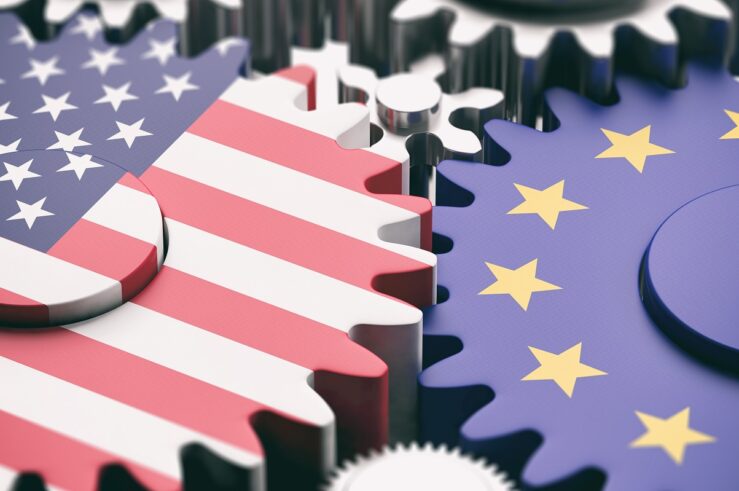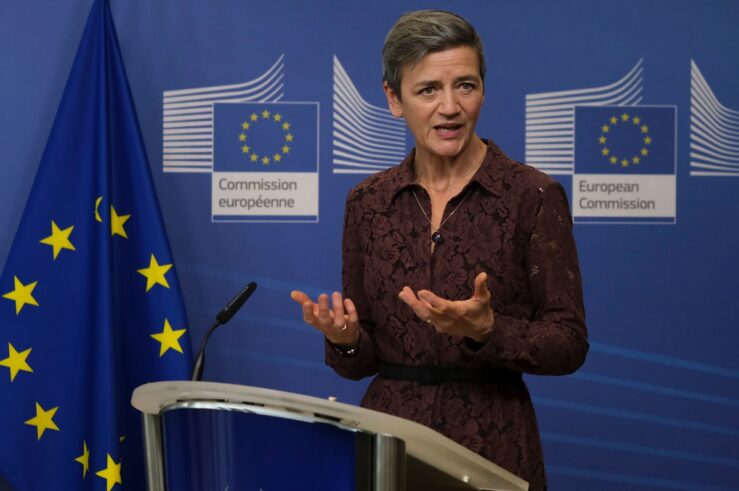Showing archive for: “EU”
Latin America Should Follow Its Own Path on Digital-Markets Competition
In order to promote competition in digital markets,[1] Latin American countries should not copy and paste “solutions” from other jurisdictions, but rather design their own set of policies. In short, Latin American countries—like my own, Peru—should not “put the cart before the horse” and regulate markets that are not yet mature. Digital or “tech” markets ... Latin America Should Follow Its Own Path on Digital-Markets Competition
When Progress Is Regressive: The Ordo-Brandeisian Devolution
It is no coincidence that ordoliberalism—the European (originally German) alternative to classical liberalism that emphasized the importance of the “social market” economy—and the New Brandeis or “neo-Brandeisian” movement, which harkens back to the Progressive Era thought of the late U.S. Supreme Court Justice Louis Brandeis, both are enjoying comebacks simultaneously. The effects of these ideological ... When Progress Is Regressive: The Ordo-Brandeisian Devolution
The View From Brazil: A TOTM Q&A with Mariana Tavares de Araujo
How did you come to be interested in the regulation of digital markets? Prior to joining Levy & Salomão Advogados, I worked with the Brazilian government for nine years, four of which I served as head of the government agency in charge of antitrust enforcement and consumer protection policy. During this time, I was very ... The View From Brazil: A TOTM Q&A with Mariana Tavares de Araujo
How ETNO’s ‘Fair Share’ Proposal Threatens Europe’s Digital Future:
The digital transformation of Europe—and, indeed, the world—has been a defining theme of the 21st century. As with all significant shifts, it has also come with its share of challenges, opportunities, and controversies. One such controversy that has recently reemerged is the so-called “fair share” proposal for network traffic—championed most recently in a statement from ... How ETNO’s ‘Fair Share’ Proposal Threatens Europe’s Digital Future:
The FTC, DOJ, and International Competition Law: Convergence Away From the Consumer Welfare Standard?
In less than two and a half years, the Federal Trade Commission (FTC) and U.S. Justice Department (DOJ) have undone more than two decades of work aimed at moving global competition law toward an economics-friendly consumer welfare standard. In tandem with foreign competition authorities, the U.S. antitrust agencies are now cooperating in an effort to ... The FTC, DOJ, and International Competition Law: Convergence Away From the Consumer Welfare Standard?
Will the EU-U.S. Data Privacy Bridge Hold?
With the European Commission’s recent announcement that it had deemed the revamped data-protection framework from the United States to be “adequate” under the European Union’s stringent General Data Protection Regulation (GDPR), the stage is set for what promises to be a legal rollercoaster in the European Court of Justice (CJEU). The Commission’s decision is certain ... Will the EU-U.S. Data Privacy Bridge Hold?
Goodbye Margrethe, Hello Didier: What Next for European Competition Law?
European Commissioner for Competition Margrethe Vestager announced Sept. 5 that she was leaving her position after nearly a decade in charge, which for the last four years has also included holding the title of “executive vice president of the European Commission for a Europe fit for the Digital Age.” Her departure caps off an uncharacteristically ... Goodbye Margrethe, Hello Didier: What Next for European Competition Law?
Uber and the Mill of Sanssouci
Freedom of enterprise is considered a second-class freedom in Spain, rather than a fundamental right. It is clear that this has been the view not only of successive Spanish governments since the current Constitution was promulgated in 1978, but also of the judges of the Supreme Court of Spain (Tribunal Supremo) and the Constitutional Court ... Uber and the Mill of Sanssouci
Norwegian Decision Banning Behavioral Advertising on Facebook and Instagram
The Norwegian Data Protection Authority (DPA) on July 14 imposed a temporary three-month ban on “behavioural advertising” on Facebook and Instagram to users based in Norway. The decision relied on the “urgency procedure” under the General Data Protection Regulation (GDPR), which exceptionally allows direct regulatory interventions by other national authorities than the authority of the country ... Norwegian Decision Banning Behavioral Advertising on Facebook and Instagram
The CJEU’s Decision in Meta’s Competition Case: Sensitive Data and Privacy Enforcement by Competition Authorities (Part 2)
Yesterday, I delved into the recent judgment in the Meta case (Case C-252/21) from the Court of Justice of the European Union (CJEU). I gave a preliminary analysis of the court’s view on some of the complexities surrounding the processing of personal data for personalized advertising under the GDPR, focusing on three lawful bases for ... The CJEU’s Decision in Meta’s Competition Case: Sensitive Data and Privacy Enforcement by Competition Authorities (Part 2)
Enforcing the DMA is Easier Said Than Done: Evidence From the Commission’s Draft Template for DMA Compliance Reports
The European Commission early last month published its draft template for DMA-compliance reports. This is the document that gatekeepers will periodically need to fill out, and which subsequently will be used to determine whether they comply with the European Union’s Digital Markets Act (DMA). The draft template is a missed opportunity to clarify some of ... Enforcing the DMA is Easier Said Than Done: Evidence From the Commission’s Draft Template for DMA Compliance Reports
The CJEU’s Decision in Meta’s Competition Case: Consequences for Personalized Advertising Under the GDPR (Part 1)
Today’s judgment from the Court of Justice of the European Union (CJEU) in Meta’s case (Case C-252/21) offers new insights into the complexities surrounding personalized advertising under the EU General Data Protection Regulation (GDPR). In the decision, in which the CJEU gave the green light to an attempt by the German competition authority (FCO) to ... The CJEU’s Decision in Meta’s Competition Case: Consequences for Personalized Advertising Under the GDPR (Part 1)














